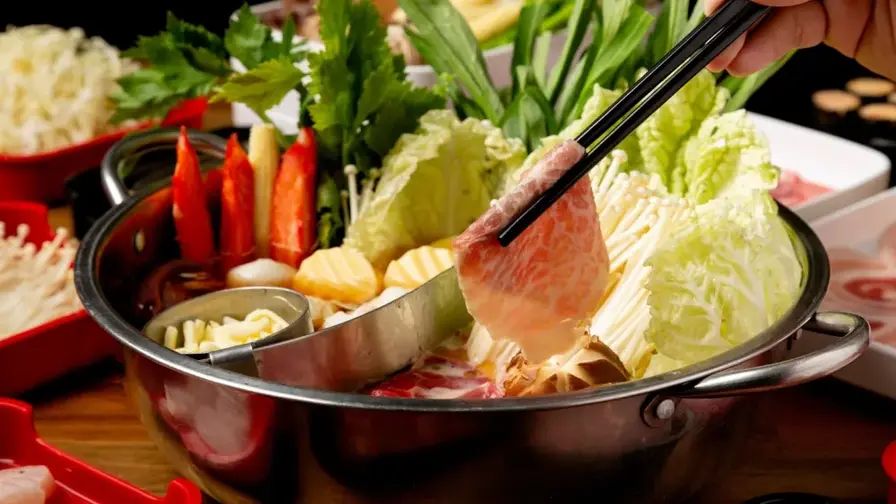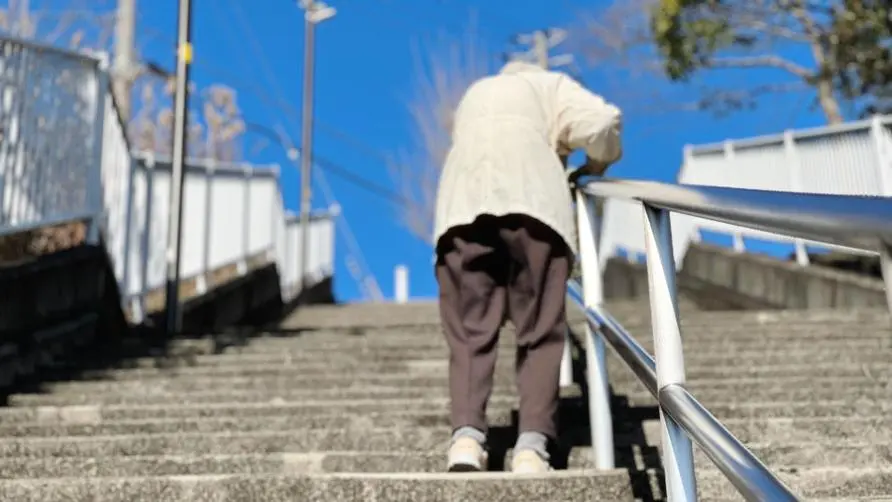Will eating pot in autumn and winter cause all the blood vessels to become clogged? Doctors remind: Don't choose among the "three major soup bases" as the risk of myocardial infarction may increase dramatically

The weather turns cooler after autumn. For those with a history of high blood pressure, angina, arrhythmia or stroke, they must be prepared for the drastic temperature difference between morning and evening. Dr. Huang Chenyou, the attending physician of the Interventional Cardiology Department of the Cardiovascular Center of Cathay General Hospital, said that when the temperature drops suddenly, the blood vessels in the body will shrink, causing the blood flow resistance to increase, which can easily lead to an increase in blood pressure, vascular endothelial cells and atherosclerotic plaques. The instability increases the risk of acute myocardial infarction and acute infarct stroke.
What is chronic angina? Is “chest tightness” not the only symptom?
Dr. Huang Chenyou explained that chest tightness caused by chronic angina is mostly likely to occur when the amount of activity increases or when emotions are aroused. Most of the chest tightness can gradually improve after rest. The symptoms of angina are also called “stable angina” and are caused by intimal hyperplasia of the coronary artery intima caused by atherosclerosis, resulting in narrowing of the vascular lumen.
When the heart load increases, coronary blood flow can easily cause insufficient oxygen supply to myocardial cells, leading to myocardial hypoxia. Chest tightness is one of the most typical symptoms of myocardial hypoxia; a small number of people will also suffer from asthma, upper abdominal discomfort, and dizziness. or nausea as a symptom. Dr. Huang Chenyou pointed out that the treatment of chronic angina should give priority to drugs, including anti-platelet drugs, vasodilators or beta-sympathetic blockers.
If the stenosis is severe and the effect of drug treatment is limited, coronary heart catheterization should be performed in advance and intravascular balloon dilatation should be performed at the most severe stenosis. Dr. Huang Chenyou said that if the blood flow is still not smooth after dilation, vascular stent placement can be performed, which is the most complete treatment for chronic angina.
Myocardial infarction can happen at any time? In case of 1 situation, it is necessary to “rush for time” to open the blood vessels
As for myocardial infarction, the symptoms are different from those of chronic angina in that they tend to come on quickly and urgently. Dr. Huang Chenyou explained that sudden myocardial infarction may occur at any time, including sleeping, resting, during exercise, or at the end of exercise. After a myocardial infarction, chest tightness will often persist and gradually become severe, accompanied by soreness and numbness in the chin and gums, soreness and numbness in the left arm, nausea and cold sweats; symptoms may not persist even after adequate rest or taking oral sublingual tablets. There is a significant improvement.
In general, the vascular pathological mechanism of myocardial infarction is different from that of chronic angina. Most of the vascular pathological mechanisms of myocardial infarction are rupture of atherosclerotic intimal plaques in the coronary arteries, resulting in massive acute thrombosis in the vascular lumen. After the blood vessel is completely blocked, the corresponding myocardium is completely deprived of oxygen. It is worth noting that myocardial cells will undergo irreversible cell necrosis and apoptosis about 20 minutes after myocardial infarction.
Dr. Huang Chenyou warned that at this time, emergency cardiac catheterization surgery is needed to “scramble time” to open the blocked blood vessels as much as possible and remove the thrombus in the lumen. In most cases, vascular stent placement is required. The complications of myocardial infarction are highly correlated with the risk of undergoing cardiac catheterization surgery, the severity of the blood vessels, and the time to myocardial reperfusion; the more vascular lesions and the later the blood vessels are opened, the greater the risk of intraoperative or postoperative complications. The higher.
After autumn, the temperature difference between morning and evening is severe, and it is considered safe if the blood pressure is lower than “this value”
Dr. Huang Chenyou reminded that after autumn, the temperature difference between morning and evening is sharp, especially for high-risk groups such as those with high temperature, smokers, and patients with chronic kidney disease, which are the most related causes of atherosclerosis. In addition to taking medication on time, the above-mentioned groups should also regularly track various cholesterol values, glycated hemoglobin, fasting blood sugar, renal function creatinine index, etc.
In addition, for patients with hypertension regardless of age or gender, it is recommended that blood pressure should be measured at home and controlled to be below 130/80 mmHg. Blood pressure values tend to fluctuate in winter. In addition to diligently recording blood pressure at home, patients should also discuss with their doctors whether to make slight adjustments to their high blood pressure medications during follow-up visits.
Will eating pot in autumn and winter cause all the blood vessels to become clogged? High-risk groups should drink less of these “3 kinds of soup bases”
Dr. Huang Chenyou also said that Taiwanese people like to enjoy greasy and calorie-dense tonic soups or hot pots in autumn and winter, and blood sugar and cholesterol are also prone to exceed the standards. It is recommended to avoid eating too much fat-containing red meat such as pigs, beef, and sheep, and to eat as little processed hot pot ingredients and hot pot soup base as possible. If you want to drink soup, you should mainly use clear soup with kombu and bonito flavors, and avoid spicy, cheese, pickled cabbage, white meat and other salty pot bases. It is recommended to only drink hot pot soup base for the first 20 minutes after the pot is boiled; the reason is that once the ingredients are added and cooked, the concentration of food additives such as sodium ions, phosphates and nitrates in the soup will increase significantly.
Finally, Dr. Huang Chenyou reminded the public that if symptoms such as persistent chest tightness, difficulty breathing, unilateral sudden weakness, or slurred speech occur, they must seek medical attention as soon as possible to prevent sudden death accidents. If you feel you have abnormal chest pain symptoms, it is recommended to go to a cardiology department or cardiac surgery department for medical examination as soon as possible to avoid delayed treatment, which may lead to irreversible myocardial defects, resulting in impaired cardiac function or even life-threatening consequences.
Further reading:





